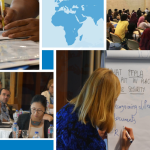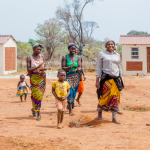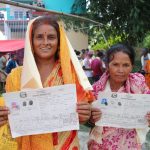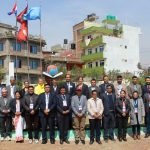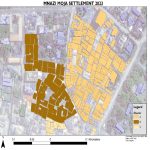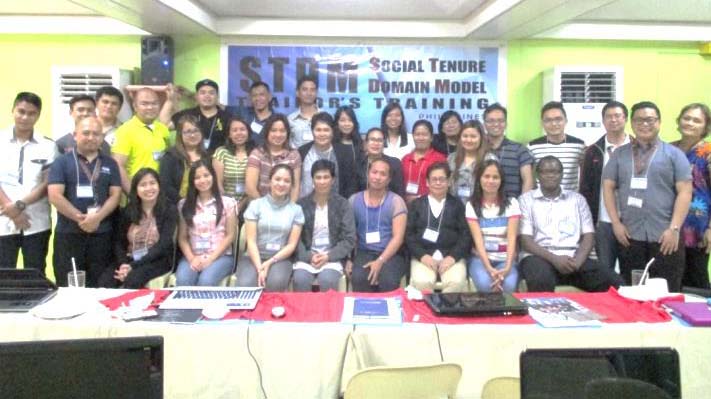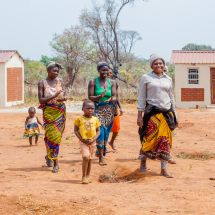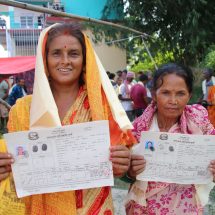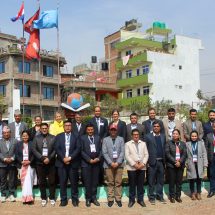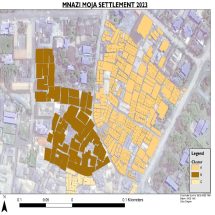[Submitted by Rhea Lyn Dealca (GLTN), with contributions from Luna Cagan (TAMPEI)]
The Global Land Tool Network (GLTN) in partnership with the Homeless Peoples Federation, Inc. (HPFPI), Linkbuild, Inc. and the Technical Assistance Movement for People and the Environment, Inc. (TAMPEI) conducted a Training of Trainers (ToT) workshop on the use and application of the Social Tenure Domain Model (STDM) from January 27-29, 2016 at the University Hotel, University of the Philippines, Diliman, Quezon City.
The aim of the training is to promote the GLTN land tool in the Philippines and to capacitate participants in the use of the STDM software for application in the context of the Philippines, particularly in informal settlements. Participants in the ToT were drawn from the local communities and local government units (LGUs) of Muntinlupa City and Valenzuela City; Geodetic Engineers of the Philippines-National Capital Region (NCR) and Region IV-A; FEATI University Department of Geodetic Engineering, University of the Philippines Department of Geodetic Engineering; FIG Young Surveyors Network (YSN), HPFPI and TAMPEI.
Formed in 1998, HPFPI is a national federation of urban poor community organizations promoting community-led approaches to securing tenure, upgrading, housing, basic services, livelihoods and disaster risk reduction and management for the urban. Currently supporting its operations is TAMPEI, an organization of technical, professional and community builders established in 2001. This ToT was a follow up to an STDM learning event facilitated by GLTN that the two organizations jointly organized in October 2013 on the potential uses of STDM in the management of community information.

The training supports the piloting of STDM in Muntinlupa City and Valenzuela City to be implemented by HPFPI and TAMPEI with partner communities and LGUs. STDM will facilitate the processing of data currently being gathered in the pilot sites through mapping and enumeration activities that will be used as input to barangay shelter planning to enhance community development initiatives. The implementation will be undertaken in partnership with land professionals, particularly geodetic engineers, academia and representatives of urban poor communities and local government units.
The training topics include an introduction to GLTN and its land tools, with focus on the concept and application of STDM. Ms. Ruby Haddad of HPFPI presented the details of the pilot project on STDM implementation in selected sites while Arch. Christopher Ebreo and Arch. Ruel Orcajado of TAMPEI shared their experience in participatory enumeration and community mapping.
A basic tutorial on database preparation for data import to STDM, QGIS and STDM features and capabilities, including practical exercises on using the STDM software and actual practice on the use of GPS was also a part of the training. Ms. Brenda Perez Castro, Manager for Urban Development, Housing and Human Settlements of Habitat for Humanity International (HFHI) Asia Pacific regional office shared the experience of HfHI in strengthening the capacity of the community in Ciudadela Sucre in Soacha, Colombia to identify and rank settlement´s problems and opportunities and formulate solutions through specific urban projects.
The presentation generated a lot of interest from the participants particularly in extracting the challenges encountered and lessons learnt on the process of implementing the STDM pilot project in Colombia.
A Working Group composed of representatives from the different organizations who participated in the training which will support the implementation of different activities was formed. They are expected to provide technical expertise and support towards the implementation of mapping activities, operationalization of STDM, as well as provision of trainings at the city and community levels.


